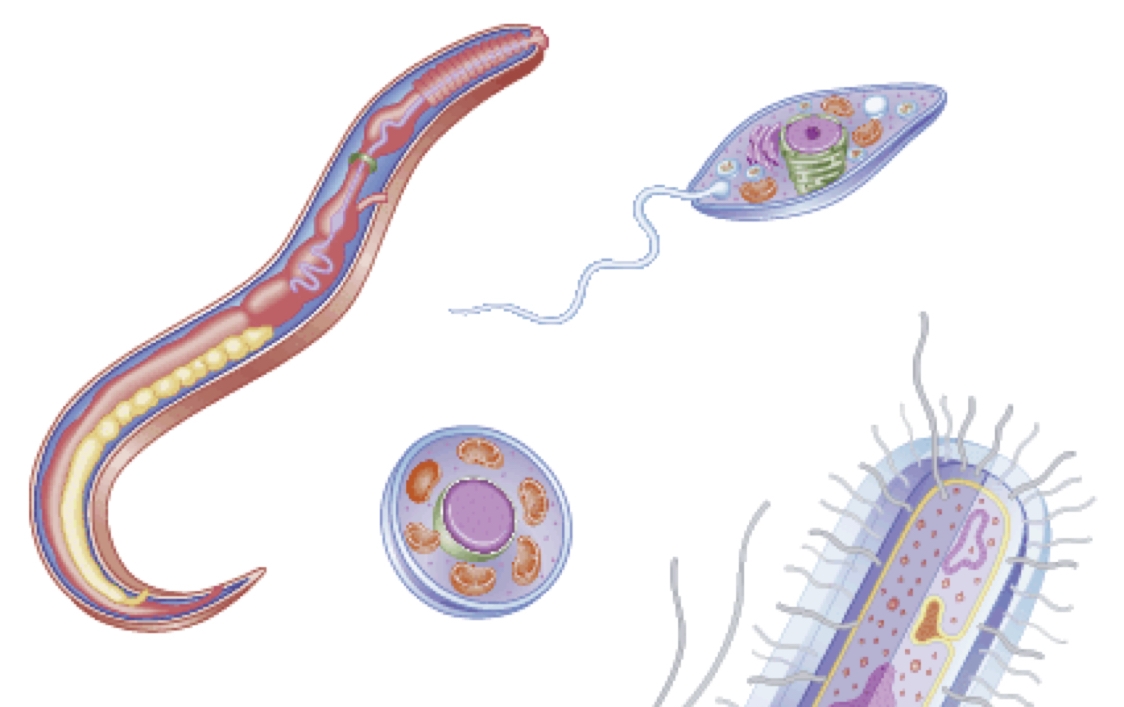Fungi are eukaryotic, heterotrophic organisms. Fungi include both single-celled yeasts and multi-cellular filamentous fungi. Many fungal species are able to survive in oligotrophic environments (which are areas relatively low in plant nutrients and containing abundant oxygen in the deeper parts). Fungi scavenge nutrients from the substrate that they colonize, or from the air or water in which they live. Fungi can produce secondary metabolites, some of which are toxins. Some fungal species and the metabolites they produce are human pathogens or allergens.
Protozoan Parasites
A protozoan is what we call a eukaryotic organism because it is a cell that contains a true nucleus and is bounded by a nuclear membrane. It consists of only a single cell and is so small that we usually can’t see it without using a microscope. The protozoa group is very diverse and has about 50 000 members, each with its own personal characteristics - almost like how every human being is different from another.


